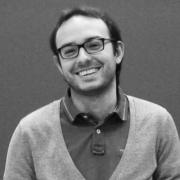
I got my PhD from SISSA in 2015, then I moved to UC Berkeley where I have been the Fellow of the Berkeley Center for Cosmological Physics for 4 years. In 2019 I joined the Theory Department at CERN as a Senior Fellow. In the fall of 2020 I will start as Assistant Professor in the Department of Physics at the University of Milan.
Title and Abstract for Emanuele's talk:
Signatures of Primordial Non-Gaussianities (PNG) in the Large Scale Structure of the Universe
The statistical properties of the primordial curvature perturbations are a key ingredient of the success of the LCDM model in explaining the Universe as we observe it today. In simplest model of inflation initial fluctuations are Gaussian for all practical purposes, and measurements of the CMB bispectrum by the Planck satellite constrain any deviation from the Gaussian regime in a part in ten thousands. On the other hand the theoretical target for the amplitude of PNG in the initial perturbations is roughly an order of magnitude smaller than what Planck has measured. We have almost saturated the information content in the CMB, and any further improvement will likely come from the late time distribution of galaxies or any other tracers of the Large Scale Structure (LSS) of the Universe. In this talk, I will present the most recent measurements of local PNG using LSS data, in particular the eBOSS Quasars catalog. I will show how optimally weighting the cosmological fields by their response to the presence of PNG maximizes the signal, improving the constraints by 20-30% with respect to a standard analysis. Larger gains are expected for next generation of surveys like Euclid. Then I will discuss a new method to constrain local PNG using unclustered tracers of the LSS. In the limit of low noise in the data, zero bias tracers yield large (~3x) improvement over standard methods, mostly due to vanishing sampling variance. We propose a simple technique to construct such a tracer, using environmental information obtained from the original sample, and validate our method with N-body simulations.
Would you like to join this Zoom seminar? Please email Donna Hayes.